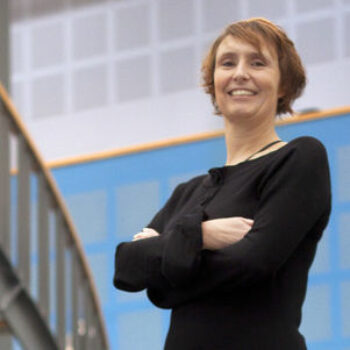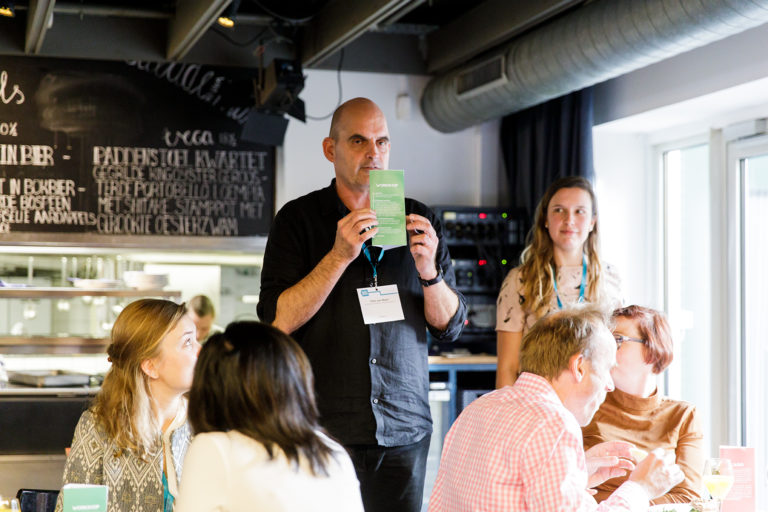Participatory City Making: Events
The Participatory City Making project (2016-2019) involved multiple events. This article shares experiences, presentations and results from the main events: the TOOLCONference, the Border Sessions with the City Tool Depot, a City Lab Workshop during Stadmakerscongres and the Participation X Action Symposium.
TOOLCONference - 5th of April 2018
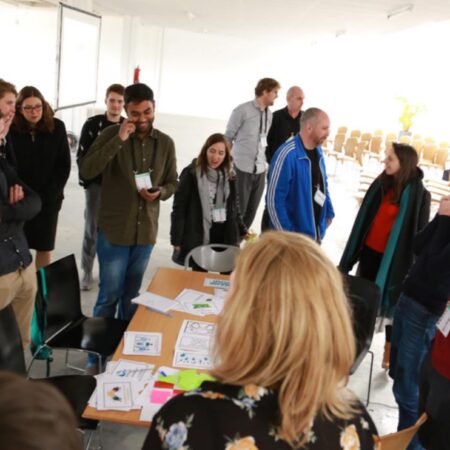
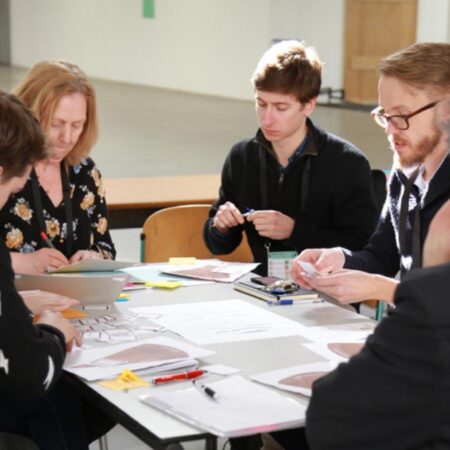

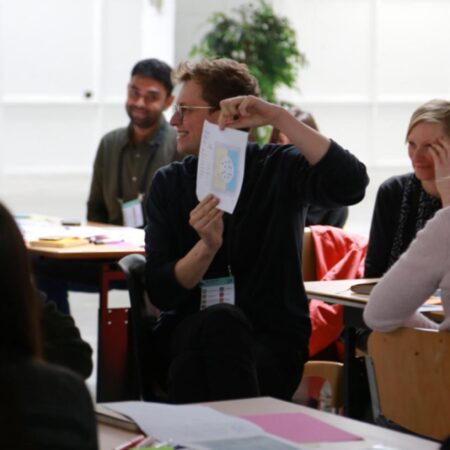
On the 5th of April 2018, we engaged with fellow citymakers, free range officials, design professionals and other bright minds of the participatory city making proces in talks and testings of city making tools and prototypes. We are looking back on an inspiring afternoon filled with good conversations and productive workshops. Below, you’ll find the slideshows and some impressions of the day.
Participatory City Making, a Framework from research to practice (EN) – Jotte de Koning, Emma Puerari. Here the PDF of the full presentation can be found.
Het maken van ‘Tools’ in Participatory City Making (NL) (2 x met bijdragen van Bjørn van Raaij en Tony van Acquoy) – Peter van Waart, Berit Piepgras
Samen werken en samen meer bereiken in Rotterdam, een design thinking tool (NL) – Paula Steenstra
Serious gaming, incentives and motivations for Participatory City making (EN) – Agnelo Iasanth. Here the PDF of the full presentation can be found.
Un-conference (NL) – moderator Peter van Waart
Impressions of the day (photos by Sunnie van de Werken)
Border Sessions: City Tool Depot - 15th of June 2018

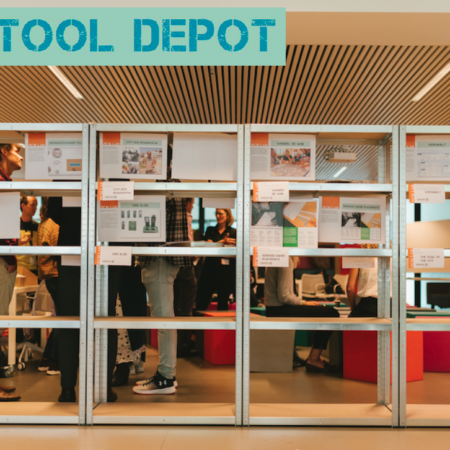


We are looking back on an inspiring day filled with insightful workshops and good discussions.
Below you will find the tools of the LAB as well as impressions of the exhibition, the workshops, and the discussions.
download the pdf here: PCM LAB at Border Sessions 2018 LR
The Participatory City Making team hosted the day and Peter van Waart held an introductory lecture to kick off the day:
Citylab workshop at Stadmakerscongres - 9th of November 2018
On the 9th of November, Participatory City Making (PCM) was present at the Stadmakerscongres (i.e. City Making Congress) in Theater Rotterdam. Together with the Creative Industries Fund NL we organised a lunch workshop. During the morning program Ingrid Mulder also participated in a panel discussion, organised by the Creative Industries Fund. The panel discussion was about ‘Citylabs and the Environmental Vision’
Citylabs and the Environmental Vision
In the panel discussion the possible roles of Citylabs and City Makers in the broader context of the challenges that are being formulated in the national and local environmental vision (NOVI), were discussed. An interesting mix of different researchers (Delft University of Technology and Maastricht University) and civil servants (Municipalities of Midden-Delfland and Maastricht and the Ministry of Internal Affairs) took part in the panel discussion. The audience was involved as well during the discussion, moderated by Edwin van Uum.

Ingrid Mulder explains what the project Participatory City Making means. Photo by Aad Hoogendoorn.
The Smart Urban Lab-kit for Learning in a Network (SMULLN) was presented by the Maastricht University. An interesting tool that will help municipalities and civil servants to ask the right questions, when founding a Citylab.
During the conversation with the audience, an interesting discussion emerged about the decreasing liveability in many neighbourhoods, which is often the result of national policies. De influx of more vulnerable groups is very big in some neighbourhoods. Can Citylabs be of added value here and what is that value? Or is it not really effective and do we need other (national) measures?
Lastly, the role that Citylabs can take in the national and local environmental vision, was discussed. The audience suggested that the ‘rules of the game’ set by the municipality often isn’t clear to citizens, when they have an idea or initiative. This can then result in disappointed citizens, because their ideas are not being executed as they would have expected. Transparency about expectations, budget and possibilities seems very important in City Making processes. Do Citylabs offer the opportunity set these rules together with the government? And what could be the role of the Creative Industry in this process? Can they help with the formulation of the rules, as a connector, facilitator or translator?
Lunchworkshop: Stadslabs duurzaam door ontwikkelen
Peter van Waart and Eva van Genuchten explain the workshop. Photo by Aad Hoogendoorn.
Then it was time to get to work for PCM. A lunch workshop was organised by Peter van Waart, Ingrid Mulder, Eva van Genuchten and the Creative Industries Fund. In collaboration with the Municipality of Rotterdam and three Citylabs (Cool-Zuid, Dakpark and Maashaven) we discussed how City Labs can develop themselves in a sustainable (long-term) way. Each of the case owners brought a case for discussion. The questions that were raised, were: How inclusive should a Citylab be? How can Citylabs sustain themselves (without depending on subsidies)? Which business models should then be used or developed? Which Citylabs are present in Rotterdam and how can they empower each other?

Case owners during the workshop.
In four groups the participants took part in one of the cases. At each table a case owner with a relevant question was present. Using canvasses the groups discussed relevant (sub)topics related to the main question of the case owner. After about 45 minutes the results were presented to the other groups, so participants were also able to learn from each other.
In four groups the participants worked on one of the cases. Photo by Aad Hoogendoorn.
Some useful insights and key take-aways were found here. For example, it is very important for the Citylab to speak the language of the neighbourhood. Therefore, it is interesting to clarify the cultural DNA of the neighbourhood. Moreover, ideas were suggested about the possibilities of a Citylab as a commissioning party for services that the neighbourhood needs (like cleaning of the area). Also, the function of a Citylab shouldn’t be too broad. Thirdly, the role of the municipality was an important point of discussion. Ideas were raised on how to better secure successes of Citylabs in policy making. Lastly, Citylabs (in Rotterdam) have the ability to empower and learn from each other. The municipality could have a role in this, by creating a Citylab of Citylabs (Overlab), and in this way focus on the knowledge and capacities of the Citylabs.
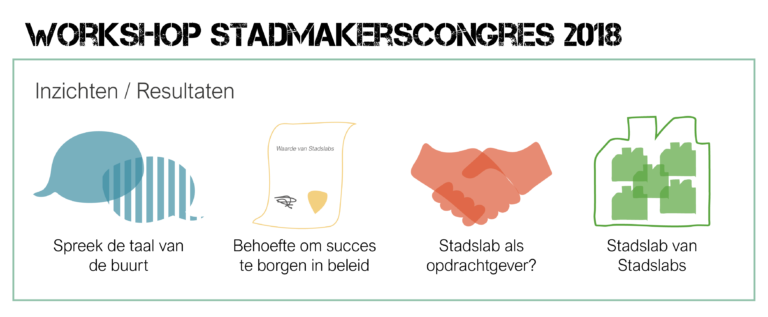
Insights workshop.
An hour full with ideas and inspiration. Creative Industries Fund and PCM look back at a successful day. Of course we hope that the ideas will be developed further and we are looking at possibilities to get started with the raised questions.
Participation x Action symposium - 20th of February 2019
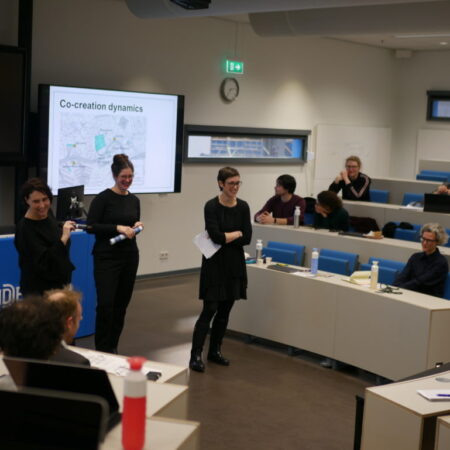



Pictures were made by Dennis Wendersteyt and Barro de Reus.
Participation x Action was the leading theme of the Participatory City Making symposium, held on Wednesday, February 20th, at the Faculty of Industrial Design Engineering, TU Delft. Project leader Ingrid Mulder welcomed a diverse group of city makers, existing of students, researchers, policy makers, designers and entrepreneurs to actively join the closing event of the NWO funded Research through Design project Participatory City Making. Consequently, the first part of the symposium showcased the main research insights, presented by Emma Puerari, Jotte de Koning, Berit Piepgras and Gaston Gelissen, and opened a lively debate with the audience. One of the main insights is citizens and civil servants should not be seen as two opposing stakeholders, instead both parties can innovative and active contribute to transitions. In other words, within the government as well as grassroot initiatives there are forces that have the potential to change the regime. The so-called interaction space between those two is the space where the changes will happen. Before the break Eva van Genuchten released a card set, that summarized both research insights and design examples of the Participatory City Making.
After a coffee break, the event continued with a panel discussion moderated by Peter van Waart. The discussion was about two main topics, and four panel members were asked for their opinion: Gerard Nijboer, Jorn Wemmenhove, Alicia Calderon Gonzalez and Federico Rita. The first one being Participation x Action: How do these two relate? Do they strengthen each other, or are they opposing each other? The panel members thought the two were very intertwined in many ways, and resulted in an interesting debate how participation differs across cultures and how the Dutch are generally seen as very actionable. The second topic stressed the role of the designer in facilitating these processes. Everybody thought that designers could and should play an important role here. But then who is the designer? And can everybody be one?
The final part of the symposium highlighted a few ongoing projects that continue the research collaboration in city making. Nazanin Hedayati of Stimuleringsfonds introduced our collaboration in the Program ‘Anders werken aan Stad, dorp en land’ that utilizes the gained insights in a workshop series for municipalities on the value of participatory city making and city labs. Alicia Calderon Gonzalez promoted Designscapes open call for pilots that stimulates pilots on Design Enabled Innovation in the urban context, and Paula Steenstra pitched her project Verhaalt that was developed in Participatory City Making and that has received Designscapes funding for a feasibility study.
You can have a look at the presentation slides below:
